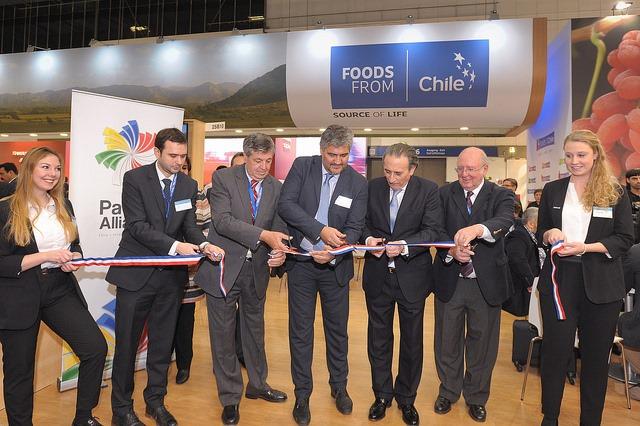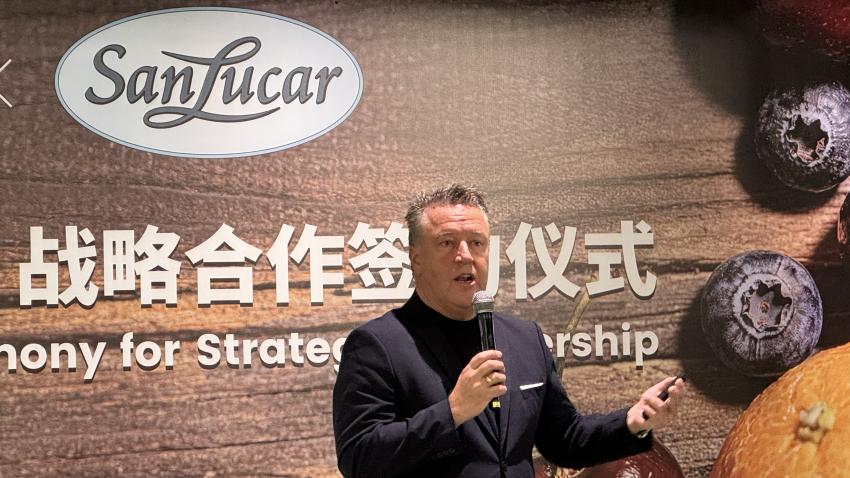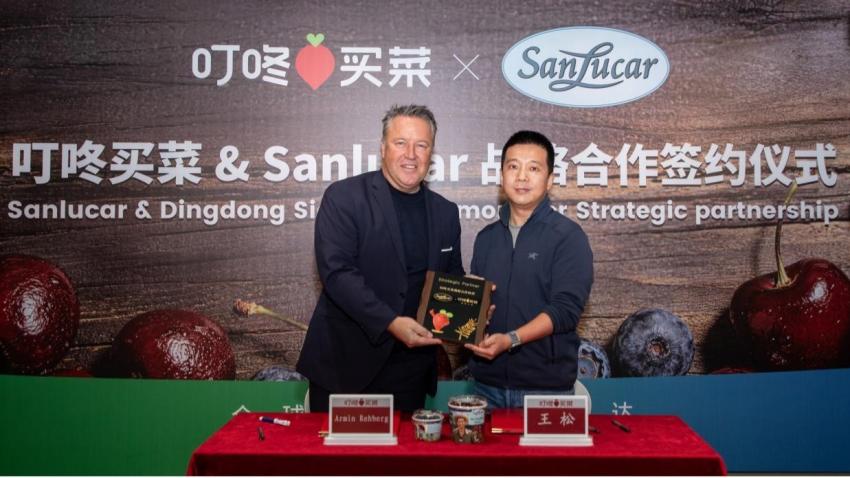You are here
Back to topThe Recipe for Chile's Fruit Exporting Success

Chile is one of the most successful exporters of fresh fruit to China, with a basket of produce that includes cherries, blueberries, plums, table grapes, apples, avocados and kiwi fruit. China is already Chile's main export partner, in part because of the Asian manufacturer's appetite for Chilean copper. However, even excluding the metal, Chilean exports to China are poised to overtake those to the US. More significantly, Chile has now become the largest exporter of fruit to China in terms of value (just shy of 1.2 billion dollars).
Produce Report met with Alejandro Buvinic, Director of Prochile, for an interview on the secret of Chile's success in Asia's largest market and its plans for the future.
The South American country's successful recipe however is not an easy one to follow, with ingredients that include an early start, a generous dose of luck, reliability, excellent institutional relations, lots of investment, a good relationship between the private and public sector, and doggedness in the pursuit of continually opening up the market to new products.
“Firstly, we have been working with China for a long time. Our free trade agreement was the first ever signed between China and a Latin American country, so that was particularly important, and what's more we are an open market from a Sanitary and Phytosanitary perspective,” said Buvinic.
In fact, the sanitary and phytosanitary conditions of Chile are a central part of the recipe and the ingredient which benefited the most from luck, as the Director of Procile went on to explain, “our geography helps us a lot from an environmental and phytosanitary (SPS) standpoint. We have a huge range of mountains, the Andes, to the east; the driest desert in the world, the Atacama, to the north; an ice mass to the south and the Pacific Ocean to the west. So these natural barriers make us a phytosanitary island, giving the Chinese market the assurance that we won't export any diseases or pests and that what arrives are healthy products.” The SPS standards are fundamental in trade with China and represent a major obstacle in market access to the country, such that according to Buvinic, “although its important to have free trade and zero tariffs for exports, sometimes it is more important to have the access to the sanitary and phytosanitary area. In addition,” he goes on, “we have excellent and globally respected institutions in Chile that have been working for a long time and that have never used phytosanitary measures as an excuse for trade restrictions.
This means that every year we are able to open a product, then we keep working on that product, then open another product. Now we have been working on pears and other fruit and have just opened up nectarines. It takes a lot of time and effort for an FTA.”
The particular geography of Chile, which runs along the west coast of South America for over 6 thousand kilometres, means that the country although small has virtually every kind of climate from the desert heat of the north to the glacial south and can therefore supply a wide range of produce. What's more Chile lies in the southern hemisphere, and this gives it the advantage of being counter seasonal, which recently played in its favour with one of the country's main exports. “Cherries have now become our most important export to China, we are in fact the country's main exporters of the fruit. In this we have been fortunate, because being counter seasonal we have the cherry harvest ready for the Chinese New Year and can supply beautiful cherries for the most important day of the Chinese calendar,” said Buvinic. In fact this year, a special consignment of cherries was shipped by a direct route to China, cutting the journey to 22 days, in order to arrive in time for the Spring Festival celebrations.”
The success of the industry however would not be possible without a close working relationship between the Chilean public and private sectors, more specifically Procile and Asoex. “What we do as a government agency is promote trade with the private sector fruit association, Asoex. It is an important partnership: we are the trade representatives for the private sector, promoting trade and supporting them because, in the end, they have to do their own business.”
In this relationship, one of the primary functions of Prochile is to improve relations with the Chinese government, also through innovative initiatives that strengthen confidence and capacity building. “When you trade in fruit it is very important to build confidence and one of our initiatives in this respect was to develop a farm just 45 minutes away from down-town Beijing. We started the farm 5 to 10 years ago as a means of transferring know-how to the Chinese on how to develop apples and other typical fruits we have in Chile, such as blueberries that are suited to the Beijing weather, and now the Chinese ministry of agriculture has started a similar farm in Chile.
By doing this, we are trying to be more connected with China, increasing the number of partnerships. With China you have to go step by step.”
Once the market is open for specific Chilean products, Prochile has the role of assisting in their promotion and now the government agency is pushing to areas beyond the traditional coastal cities of the east, to reach new markets within China, “We have four trade offices in China, in Shanghai, Guangzhou, Beijing and Hong Kong and that is a lot. The only countries in which we have more than two offices are the US and China. We have also been working on our Chilean week initiatives and have already organised two so far. On both occasions there were over 1000 meetings and business encounters, mainly in the agricultural sector as well as bilateral political meetings, B2B trade rounds, cooking shows, investment seminars and a lot of marketing development to increase the Chilean presence in China. We will do it again this year probably at the beginning of September and would prefer to have the next Chilean week somewhere in a town in central China, we then plan to open another trade office, but it is something we will have to consider very seriously, maybe in Chongqin or Chengdu.”
So finally, what are the priorities for Chile in the near future after the successes of Chilean cherries and blueberries? “Our next priority is to do a lot of promotion of nectarines because we have just opened that product and need to try to encourage demand. We also need to keep working on different kinds of food products, in particular dried fruits which are gaining in popularity, also in China.”
The director of Prochile then went on to talk about the need to keep pace with technological advances. “We have been working a lot with e-commerce and have a partnership agreement with Ali-baba and other portals. What's more we have been training a lot of SMEs in Chile to use the websites to trade with China, because e-commerce grew massively in China last year, 24 percent according to some statistics I've seen and we need to take advantage of this.”
Photos: MZMC













Add new comment